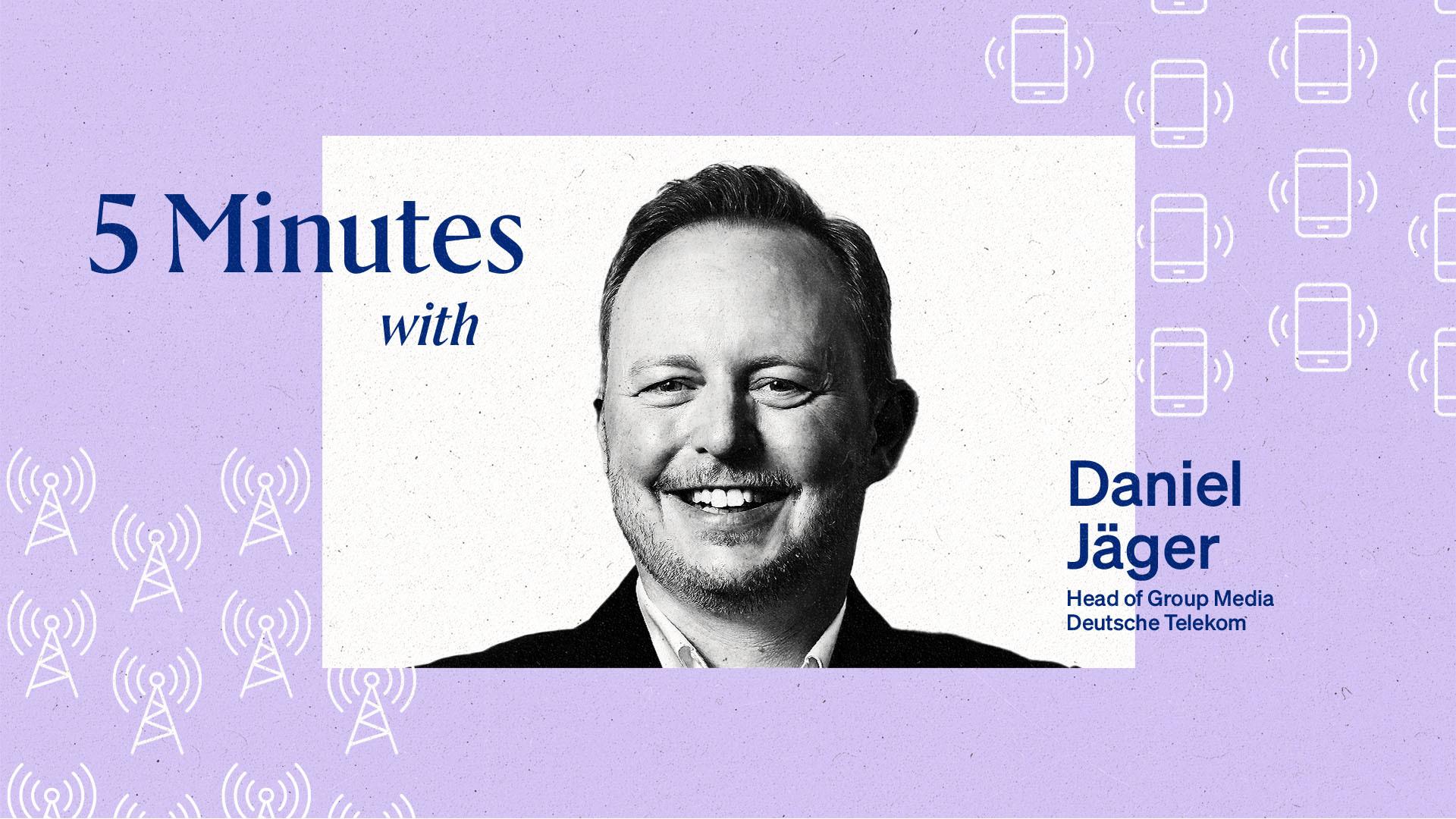Deutsche Telekom’s Daniel Jäger on why responsible media drives better results

The anti-DEI and anti-ESG backlash seems to be the new flavor du jour in a growing number of corporate boardrooms. But when it comes to advertising, brands deliberately avoiding allocating ad investments to responsible media are leaving revenue on the table, according to Daniel Jäger, head of group media at Deutsche Telekom, the German telecoms giant and owner of T-Mobile.
Jäger defines responsible media as media that promotes a positive societal impact, is socially accountable, and is safe for both brands and consumers. While responsible media often comes at a premium, Jäger believes it also helps brands build trust and improve their reputation with their customers, while cutting down on wasted spend.
Here, Jäger shares how brands can reap long-term benefits from investing in responsible media, even as — and perhaps especially as — the winds pushing the DEI and ESG movements forward seem to be changing.
Break down responsible media: What is it, and why should advertisers be paying more attention?
Responsible media means that we act in the long-term interest of the consumer and, on a larger scale, of society. A long-term approach to media should be ethical, sustainable, inclusive, and socially accountable, focusing on minimizing harm and promoting positive societal impact.
This means aligning campaigns with values like transparency, diversity, environmental sustainability, as well as brand and consumer safety. Consumers increasingly demand accountability, expecting brands to take responsibility for their activities.
Prioritizing responsible media not only protects brand reputation but also builds trust and long-term loyalty, making it a strategic advantage in today’s socially conscious market.
How does responsible media improve advertising performance?
Responsible media improves advertising performance by building trust, enhancing brand reputation, increasing engagement and forcing brands to sort out a lot of wastage.
Consumers are more likely to support brands that align with their values, leading to stronger loyalty and higher conversion rates. Ads placed in safe, ethical contexts see better reception, avoiding backlash from association with harmful or divisive content.
What are two or three examples from your work at Deutsche Telekom, and what measurable benefits have you seen?
We regularly audit our activities for potential CO2 savings and consistently roll out the findings. Recent measurements have shown that with simple optimizations, we have already been able to optimize over 80% CO2 savings compared to German benchmarks and over 40% compared to our own campaign benchmarks and industry standard.
Subscribe to The Current
Get the latest in modern marketing straight to your inbox weekly.
Apart from that, we have clear rules for data usage. For the benefit of our customers, we focus on transparency and control, going beyond the GDPR [General Data Protection Regulation]. We also constantly optimize our campaigns on brand safety.
Regarding diversity, it is important to us not to exclude anyone in our communication. We implement this in our campaign planning without exception. The fight against hate speech and disinformation in our networks is very important to us. We are strongly committed to quality journalism and support the media that provide us with contexts in which we can run our campaigns with greater impact.
What is stopping advertisers from investing as much as they should in it?
The advertisers I am talking to often hesitate to invest in responsible media due to higher upfront costs, a focus on short-term ROI and the lack of clear metrics to measure its impact. We need clear standards to be able to judge whether something is sustainably responsible.
Challenges like navigating complex ecosystems, ensuring brand safety and internal resistance to change also play a role, while the absence of unified standards makes it harder to justify the investment.
How do you see it evolve in the next two to three years, and what may advertisers miss out on if they don’t invest in it?
After working on responsible media now for two years, my conclusion is that good things take time. The hype surrounding responsible media seems to be waning in the market. However, this should not prevent companies from continuing to take responsibility in the long term. Over time, requirements such as ESG will become standards, and I am convinced companies that do not act responsibly will lose a significant number of customers.